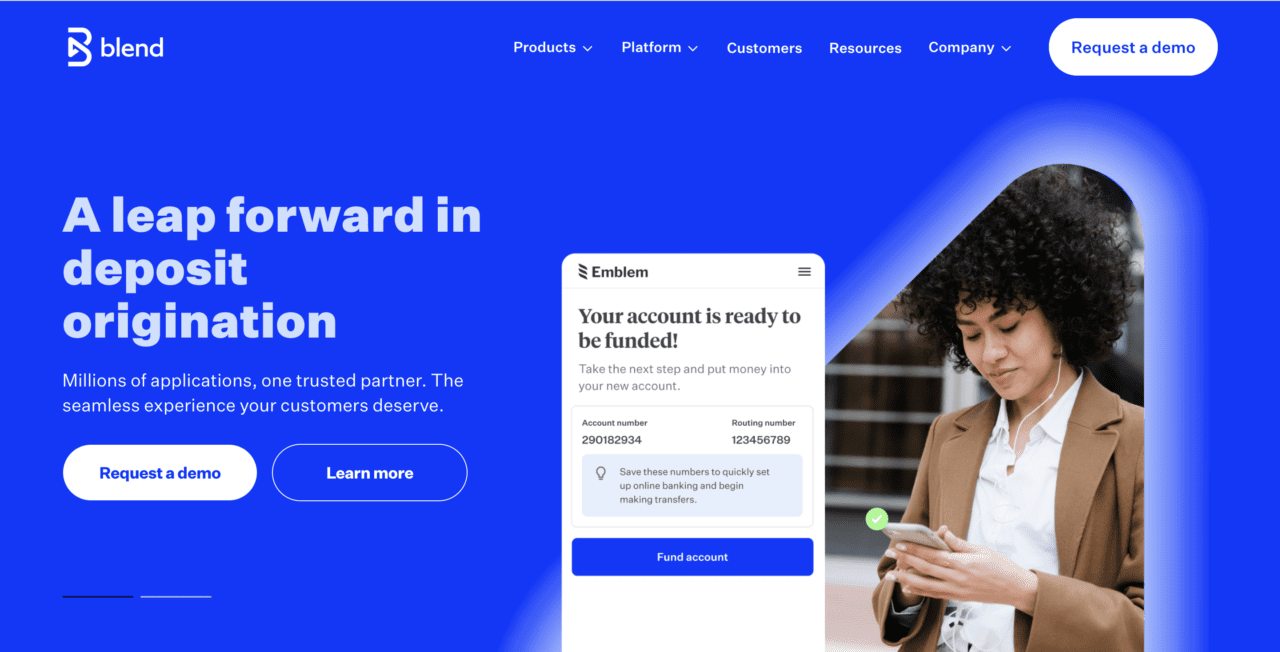
A look at the companies demoing at FinovateFall in New York on September 9 and 10. Register today using this link and save 20%.
ComplyCo
ComplyCo offers the visibility and control needed to effectively oversee digital environments, leveraging end-user session recordings to support monitoring and observability for non-technical teams.
Features
- Provides investigative controls for an organization’s digital environments
- Includes population-based monitoring
- Offers version control and effective testing
Who’s it for?
Financial institutions offering products of their own or through partnerships with fintechs in a digital environment.
FinTech Insights
FinTech Insights is an AI-powered competitive analysis platform for banks and fintechs. By analyzing digital banking offerings, FinTech Insights enables faster UX research, product releases, and innovation.
Features
FinTech Insights GPT allows users to:
- Receive actual and actionable insights in seconds
- Streamline product research processes from months to minutes
- Make faster, bullet-proof decisions with accuracy
Who’s it for?
High-street banks, credit unions, community banks, regional banks, challenger banks, fintechs, and digital banking providers.
Quavo Fraud & Disputes
Quavo Fraud & Disputes is the leading provider of innovative dispute management solutions for issuing financial organizations. Launch is an all-new offering of their proven dispute management system.
Features
- Requires zero onboarding time for immediate use
- Offers an affordable base product that scales with FIs
- Fully compliant with regulatory and network standards
- Delivers highly automated dispute management systems
Who’s it for?
Banks, fintechs, processors, and credit unions of all sizes, and any organizations subject to regulation E/Z dispute resolution or serving institutions subject to it.
Scamnetic
Scamnetic’s everyday solution helps consumers detect every type of scam in real-time, removing human error from the equation. Their patented, AI technology can be easily integrated into enterprise platforms.
Features
- Scan&Score™: Auto or quick scan with real time message validation
- IDeveryone™: C2C authentication and verification before payment
- ScamIntervention™: Proactive call center support pre-or-post scam
Who’s it for?
Banks, credit unions, payment providers, small-to-medium sized businesses helping their customers, members, and employees stay safe, especially from scams using their name.
Setuply
Setuply is an AI-powered client onboarding and lifecycle management platform for B2B solution providers purpose-built to accelerate revenue recognition and profitability.
Features
- Delivers real-time insight into the revenue at stake to prioritize work
- Offers scalable and repeatable onboarding processes
- Increases client engagement and collaboration
Who’s it for?
B2B service and implementation providers.
Telesign
Telesign delivers their 2024 Fraud Protection Insights with PowerBI.
Features
- Learnings from Telesign, the DI and Communications Security leader Proof of Concept data
- Delivers 2024 fraud vector insights
- Over 200 investigations analyzed since September 2023
Who’s it for?
Banks, credit unions, fintechs, and e-commerce SMB and enterprise businesses.
Vine Financial
Vine Financial is a cutting-edge commercial lending platform that is highly configurable and supports the entire loan lifecycle. With AI, it automates everyday tasks that tie up employee time.
Features
- Offers AI-assisted document import, financial analysis, and document generation
- Includes extensive configuration capability to support each FI’s workflows
- Eliminates the need for an expensive third-party CRM
Who’s it for?
Banks, credit unions, private lenders, venture capitalists, private equity, and any other industries requiring financial analysis and due diligence.











